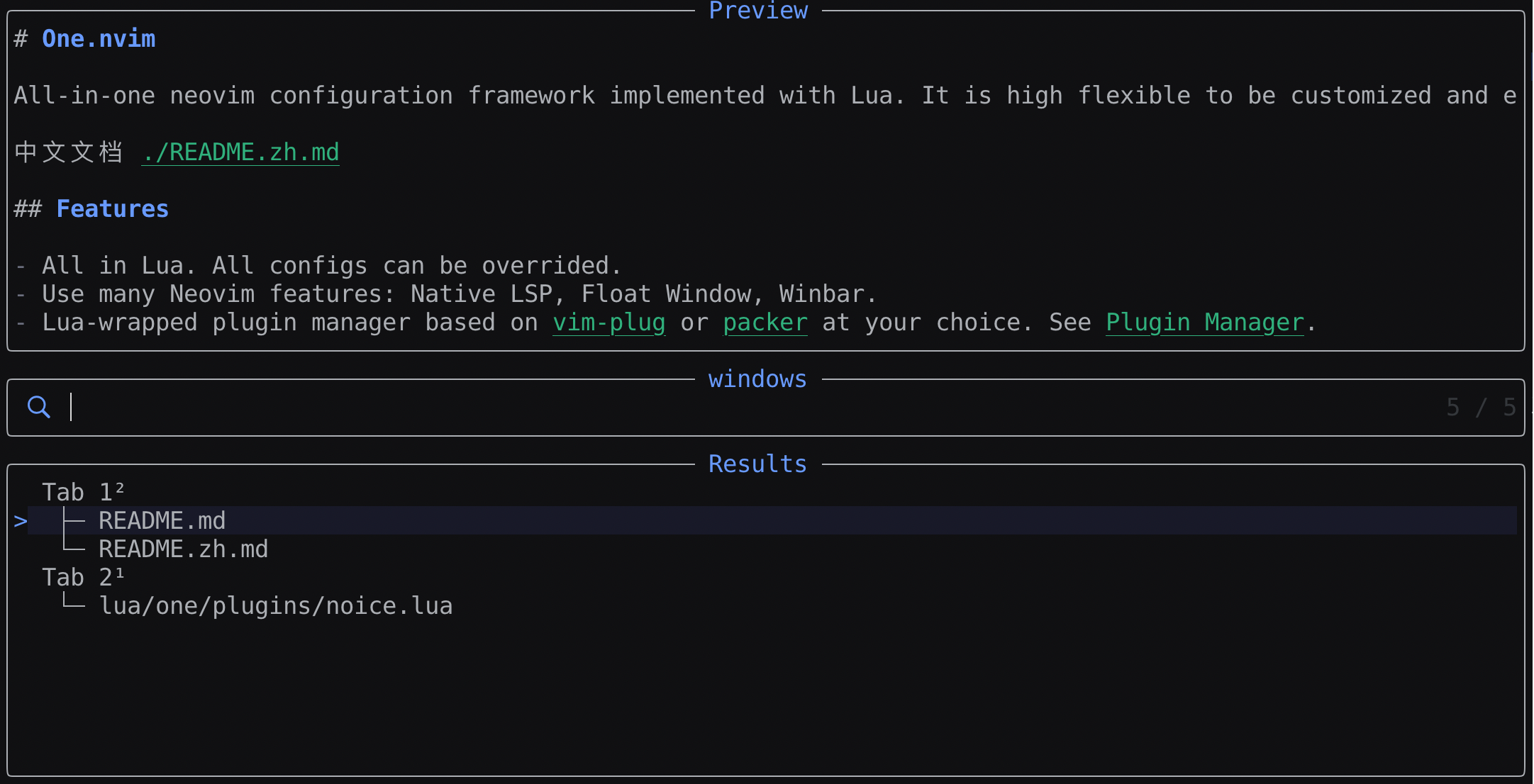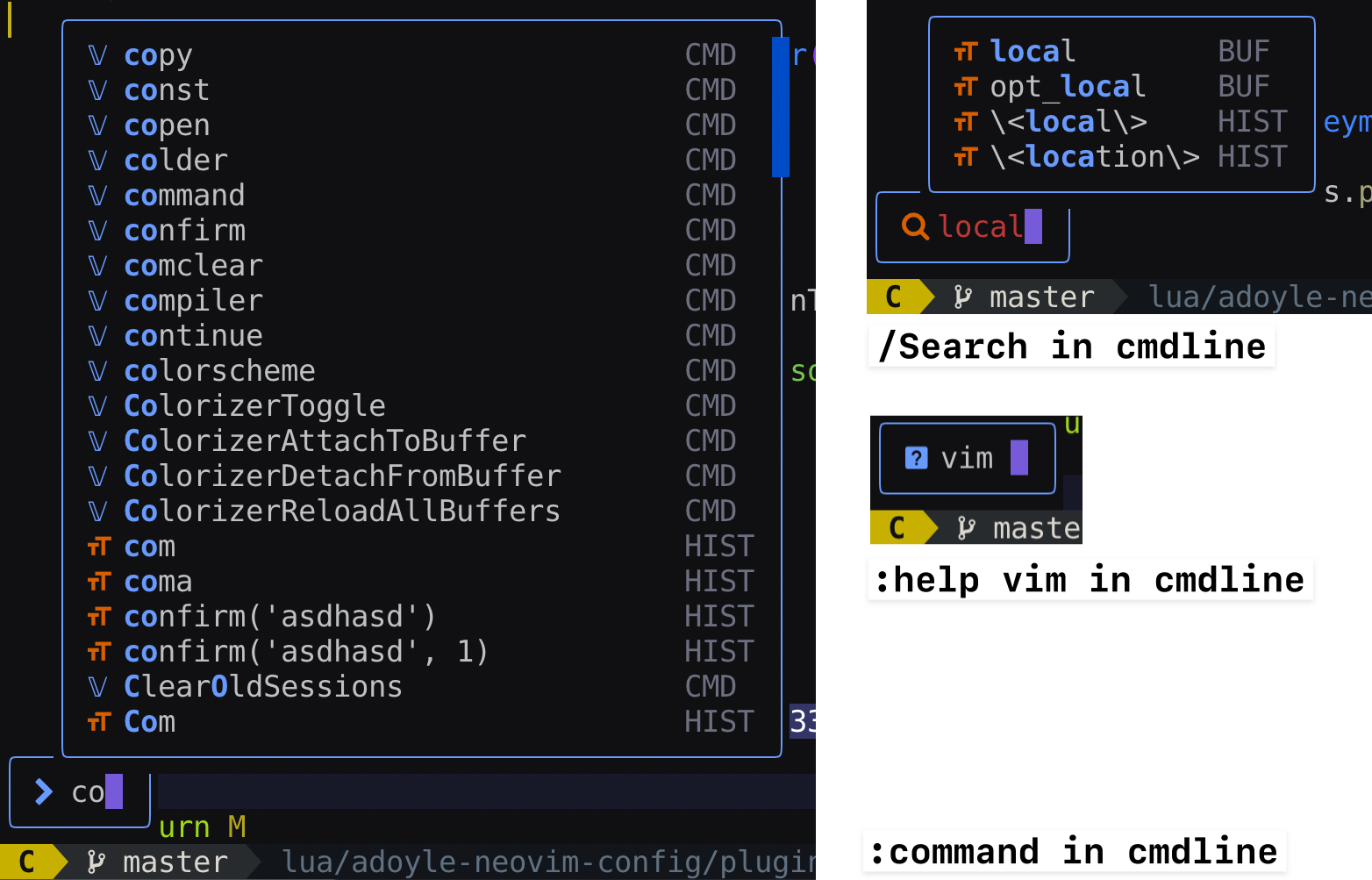Tricks for debug. Such as disable all plugins.
The project uses nvim-lspconfig and null-ls to manage LSP clients. And using mason.nvim and mason-installer to manege packages, which includes LSP, DAP, linters, formatters and null-ls packages.
-
nvim-lspconfig: provides a series of LSP client configurations that can be used out of the box. Please read nvim-lspconfig document.
-
null-ls: a virtual LSP client, which bridge to non-LSP commands (like eslint, prettier). Please read null-ls documents.
-
mason.nvim: manege LSP, DAP, linters, formatters and null-ls packages.
-
mason-installer: auto install mason packages.
-
Invoke
:Masonor press<Alt-m>to view LSP installations. -
Invoke
:LspInfoto show LSP for current file. -
Invoke
:NullLsInfoto show LSP for current file.
The project only installs Lua LSP and Formatter by default. You can refer to mason-installer defaultConfig and ADoyle's init.lua to customize your own.
The code formatting is based on LSP. Using lsp-format instead of nvim builtin vim.lsp.buf.format to provide more flexible configurations. Read lsp-format options.
You can set multi formatters to format codes at the same time. And you can also change the order of formatters by filetype.
The configs of formatter are at lsp.format and nullLS.sources.
Default to use the formatters defined in nullLS.sources, and then formatters defined in lsp.format.
There are many useful telescope extensions. Read ad-telescope-extensions.nvim and lua/one/plugins/telescope/extensions.lua
Use <space>; to view all telescope extensions.
Press <C-w><C-w> to open a picker to view all tabpages and windows.
Press <CR> to goto selected window or tabpage.
This feature is disabled by default. Because it seems not stable. You can enable it by below codes.
require('one').setup {
plugins = {
{ 'noice', disable = false },
},
}It will hide cmdline. And popup window when :, /, ? pressed.
For reduce installing and loading time, some plugins are available but disabled or not loaded by default. You can enable them as required.
require('one').setup {
plugins = function(load, config)
-- Load the builtin plugins
return {
load('profiling'),
load('funny', { disable = true }), -- You can pass options to override the default options of plugin.
load('noice'),
}
end
}The unloaded plugins list in here.
local my = {}
my.highlights = function(config)
local c = config.colors
return { CmpGhostText = { fg = c.grey4, bg = c.darkBlue } }
end
my.commands = {
Hello = ':echo world'
}
require('one').setup {
plugins = { my },
}You can call the properties of one.nvim in runtime.
╭─────────────────────╮
│ 𝕍 one.CM CMD │
│ 𝕍 one.FT CMD │
│ 𝕍 one.PM CMD │
│ 𝕍 one.cmp CMD │
│ 𝕍 one.util CMD │
│ 𝕍 one.setup CMD │
│ 𝕍 one.consts CMD │
│ 𝕍 one.telescope CMD │
╰─────────────────────╯
:lua one.
By default, it is assigned to global variable one. (Read the option config.global = 'one')
You can change it to other variable name as you like.
Or set false or nil to prevent creating this global variable.
That's cool, isn't it?
require('one').setup {
plugins = {
{ 'profiling', disable = false }, -- This plugin is disabled in default
}
}Enable profiling plugin, and invoke :StartupTime in nvim. It will print each time on startup.

